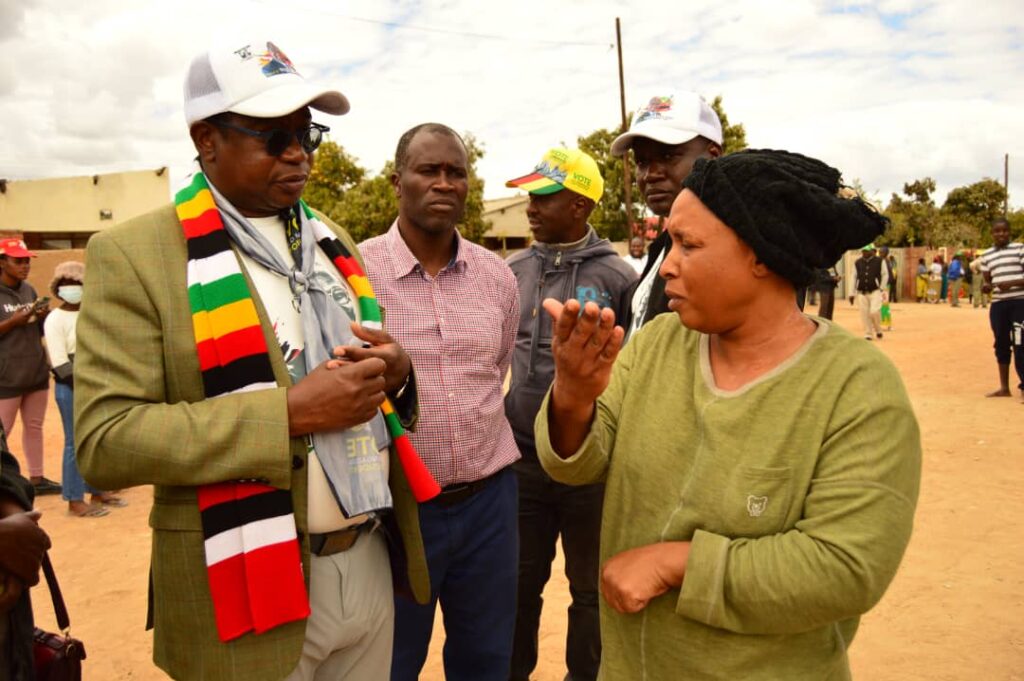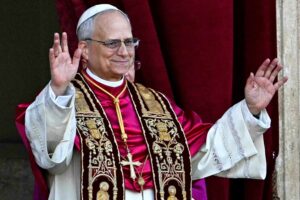CLAIM: The constitution allows the President to appoint up to 7 (people) into Cabinet without them having been elected into Parliament. They automatically become members of Parliament with the same rights privileges and obligations as constituency MPs. Mthuli is already a member Parliament, he doesn’t need to represent a constituency to be there. He is already there.
SOURCE: Tino Chinyoka on X (formerly Twitter)
VERDICT: False
The recall of 15 National Assembly members belonging to the main opposition, Citizens Coalition of Zimbabwe, has also affected the Cowdray Park constituency.
This was the seat that was contested by current Finance minister Prof Mthuli Ncube. However, according to his party ZANU PF, he is not going to be contesting for this seat in the coming by elections.
This has led to speculation on his non participation, with some people claiming that he does not need to contest since he is already a member of parliament
An account, @TinoChinyoka on X, claimed that Prof Ncube is ‘already a member of parliament’ and that when he was appointed into cabinet he automatically became a member of parliament ‘with the same rights, privileges and obligations as constituency MPs’.
This was in response to a post by online newspaper ZimLive on the non participation of the minister in the by-election.
Chinyoka posted, ‘It is painful when news organisations are this uninformed. The Minister of Finance is already a member of parliament. A member of Parliament cannot contest for a seat in parliament without resigning first. Why would anyone already in parliament resign from their seat in Parliament in order to be elected into parliament? Do we think first before we inform people? Or is the misinformation deliberate’.

Prof Ncube on the campaign trail
Changes in the Constitution
Chinyoka seems to have based his claim on the old Constitution. The 2013 Constitution does not have non constituency members of Parliament but instead, non MP cabinet ministers.
This means that the seven individuals that the President can appoint into his cabinet from outside Parliament can become ministers without becoming members of parliament.
Section 102 (3) states that ‘Ministers and Deputy Ministers are appointed from among Senators or Members of the National Assembly, but up to seven, chosen for their professional skills and competence,may be appointed from outside Parliament.’
The composition of the senate and house of assembly as described in Sections 120 and 124, respectively, do not allow for the appointment of non constituency MPs.
There are 80 senators. Of these, 60 are elected on proportional representation, sixteen are chiefs, two represent the constituency of people with disabilities and then the President and deputy president of the senate.
The National Assembly has a total of 280 members. Of these, 210 are elected directly to represent constituencies, 60 are women elected on proportional representation and 10 youth members also on proportional representation.
It is clear that both houses have no room for non constituency members from Cabinet.
Furthermore, contrary to Chinyoka’s claim that these ministers ‘automatically become members of Parliament with the same rights privileges and obligations as constituency MPs’ is false as it contradicts Section 120 (5) which clearly states that ‘Ministers and Deputy Ministers who are not Members of Parliament may sit and speak, but not vote, in the Senate or the National Assembly’.
These cabinet ministers and deputy ministers are not members of parliament and while they may sit and speak in both houses, they do not have voting privileges that members of parliament have.
Pre-2013 Non Constituency Members
The pre-2013 Constitution did not allow anyone to be a Vice President, Cabinet minister or deputy for more than three months without being a member of Parliament [Section 31E(2)]. Furthermore, the composition of Parliament was such that of its 150 members, 120 were elected on constituency basis while the remaining 30 were appointed as non constituency. Of these 30, 18 were indirectly appointed by the President – 10 Provincial Governors and 8 Chiefs and the remaining 12 direct appointees of the President as non constituency members of parliament [Section 38(1)].
Conclusion
The claim that the 7 people appointed by the President into Cabinet from outside Parliament ‘automatically become members of Parliament with the same rights privileges and obligations as constituency MPs’ has been rated as false. The provision of non constituency members was dropped from the 2013 Constitution. The current constitution allows for the appointment of the 7, like Prof Mthuli, but they are not members of Parliament. They are non MP cabinet ministers. While they can sit and speak in both houses, they do not have the privilege of voting in either house when they do not belong to it.











